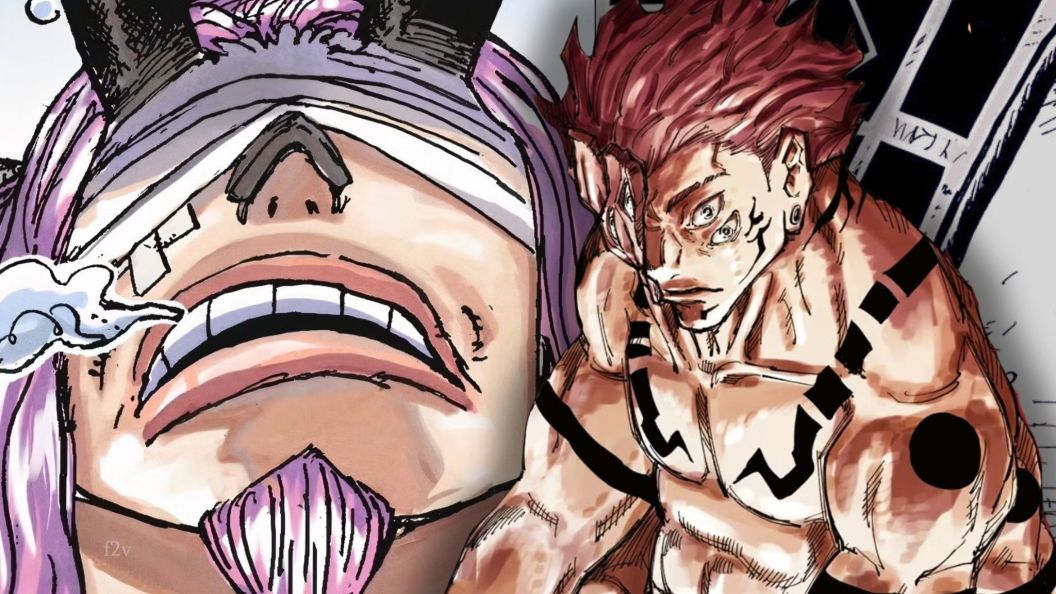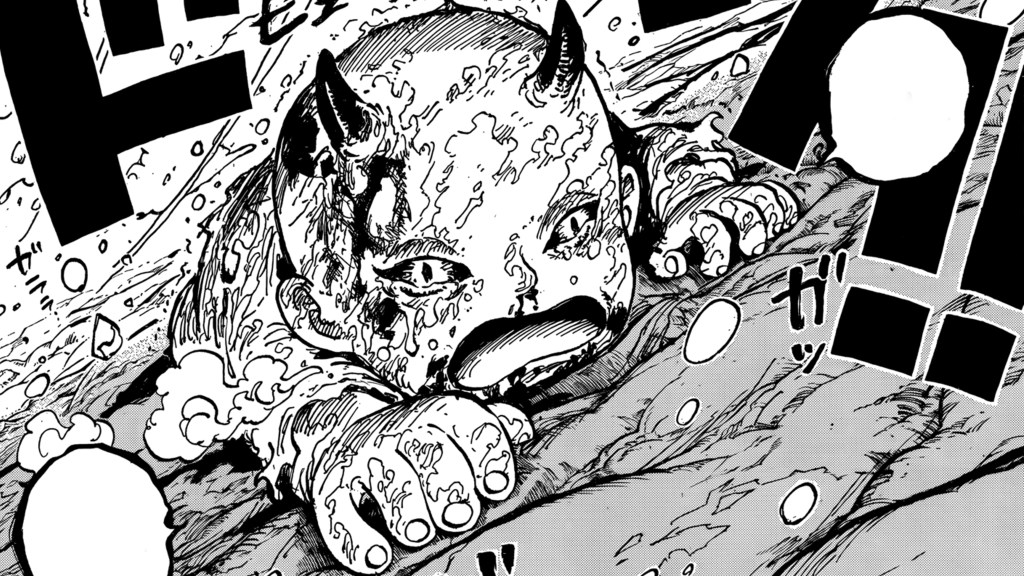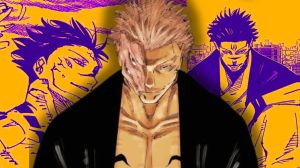
One Piece Chapter 1153, titled “The Birth of Loki,” delves into Harold’s backstory, exploring how he came to be the pacifist he is known as in the current timeline and why he is revered as the greatest King of Elbaf. The flashback connects several dots about his character, including the birth of his sons, Hajrudin and Loki. This chapter also highlights the traditions of Elbaf, showing that despite Harold’s progressive views, he still adhered to certain customs, such as marrying a woman of prominent lineage to preserve royal blood, through which Loki was born.
However, immediately after Loki’s birth, he was discarded by his mother due to his unusual eyes, branded a monster from the moment he arrived. In her rejection, Estrid, his mother, even went so far as to cast the newborn into the realm of death, yet he survived and returned. She then revealed a grim prophecy: that Loki would one day kill his father. This was enough for him to be labeled the accursed prince. The revelation is striking, as it emphasizes how Loki’s descent into villainy was shaped not by his choices but by the people around him. Comparing Loki’s situation with Ryomen Sukuna from Jujutsu Kaisen forms a compelling parallel to him, whose own origins, hinted at through context, reflect a similarly tragic and troubled birth.
Sukuna and Loki Have Similar Tragic Births

While One Piece depicts Loki’s birth through a flashback, Sukuna’s birth in Jujutsu Kaisen is only mentioned twice, and only by the villain himself. Yet, upon deeper analysis, it becomes clear that Sukuna, like Loki, wasn’t born to be a villain but was tragically forced into becoming one after being rejected by his mother. The first mention of Sukuna’s birth appears in Chapter 237 of Jujutsu Kaisen, in response to a question from Hajime Kashimo, who asks if Sukuna was born the strongest. Sukuna answers by saying he was an “unwanted child.” While the response might seem vague at first, a closer look at the Japanese kanji reveals a deeper cultural implication.
The original kanji can roughly translate to “creepy child,” which, when placed within the context of Japanese culture, often refers to someone born disfigured. While this detail might have initially been brushed off as fan interpretation, further context from Sukuna himself, shared twenty chapters later, confirms its weight. In Chapter 257, while discussing Yuji’s uniqueness with Uraume, Sukuna reveals he was almost born as a twin but ended up eating his sibling in the womb. His mother, he explains, was starving and likely didn’t want children. This shocking revelation not only supports his earlier statement about being a “creepy child” but also implies he may have been born conjoined or physically abnormal.

The fact that Sukuna later becomes a cannibal reinforces the notion that he became what people feared from his birth, the child who devoured his own twin. This perfectly encapsulates Jujutsu Kaisen’s core theme: that curses are born from what people fear most. Similarly, Loki’s birth, marked by rejection from his mother and fear from those around him, mirrors this tragic setup. Yet, where Sukuna’s path never allows for redemption, Loki’s flashback and the current narrative appear to be setting the stage for him to rise as a hero that will offer a stark contrast in how two cursed births can lead to entirely different destinies if given the chance.
One Piece‘s Loki Will Get the Chance For Redemption That Sukuna Never Got

In the finale of Jujutsu Kaisen, Sukuna reveals to Mahito that he had two choices, both rooted in love, whether parental or romantic, neither of which he ever embraced. This confession underscores how deeply his rejection, especially from his mother, shaped his hatred for humanity. Rather than choosing love, Sukuna consistently chose the path of darkness, consumed by the pain of being unloved and unwanted. In contrast, One Piece is currently setting Loki up as a character poised for redemption. Alongside Luffy and Zoro, Loki is one of the few individuals in Elbaf shown to possess Conqueror’s Haki, an ability that places him among those capable of standing against the Holy Knights. This positions him not only as a powerful warrior but also as a potential savior of his people.
The flashback further reveals that Harold, Loki’s father, was possessed by Imu, just as Dorry and Brogy are in the present timeline. This revelation could help the people of Elbaf understand that if Loki did, in fact, kill his father, it wasn’t out of malice or destiny, but necessity. Loki’s arc in One Piece appears to be one of redemption and heroism, positioning him to become the true King of Elbaf. His journey is reinforcing the idea that destiny is not set at birth, but it is shaped by the choices one makes. Sadly, that is a chance Jujutsu Kaisen’s Sukuna never received.
The post One Piece’s Loki Strikes a Tragic Parallel With Sukuna From Jujutsu Kaisen appeared first on ComicBook.com.


